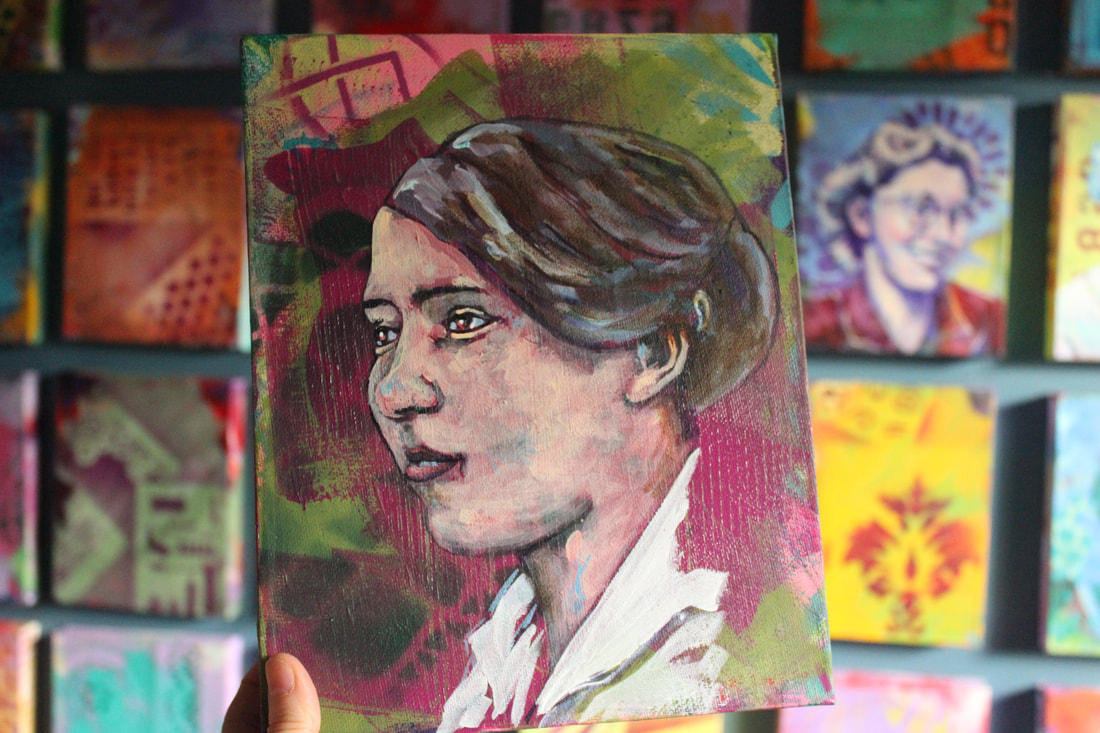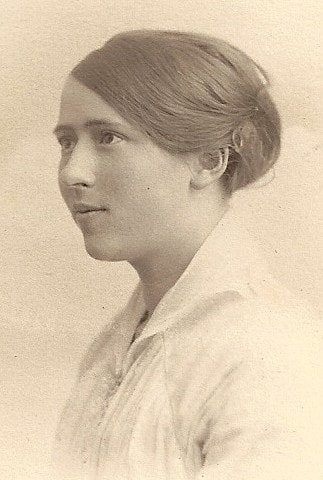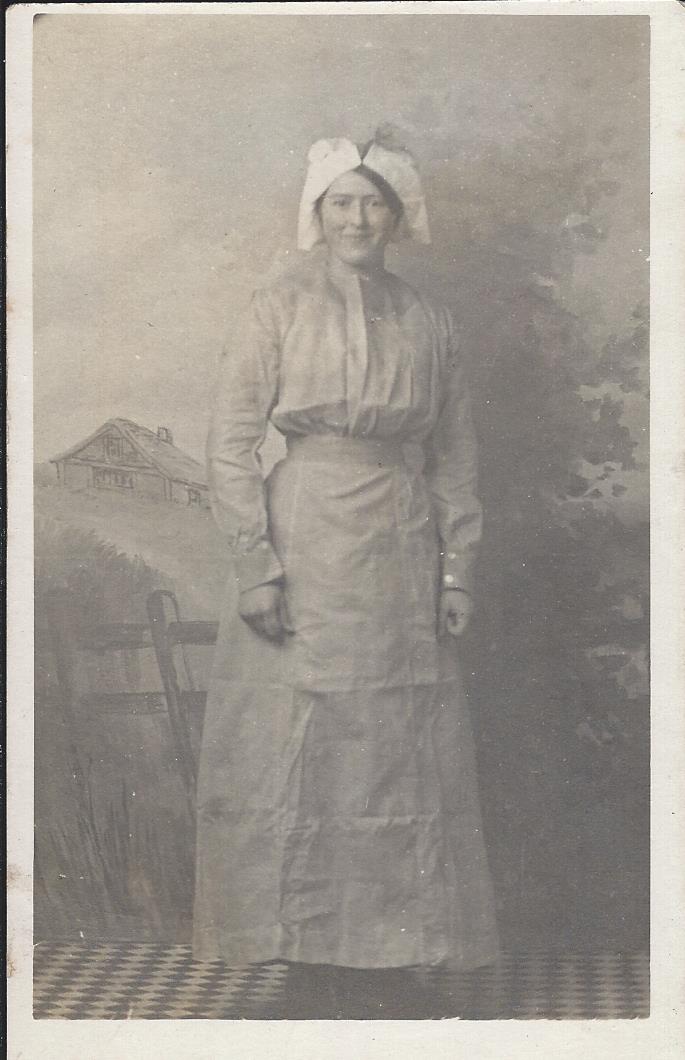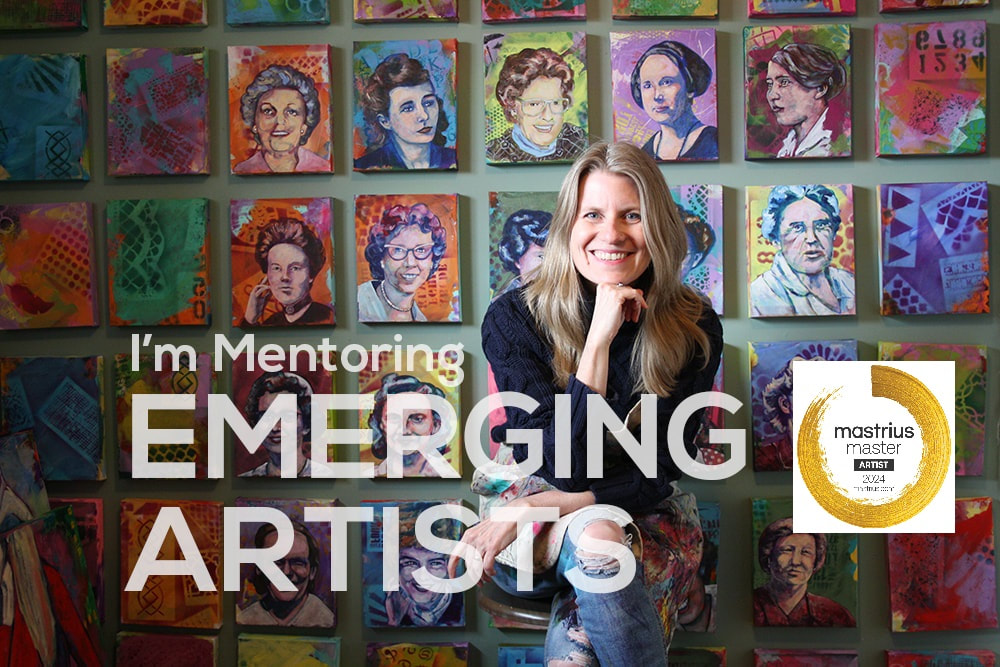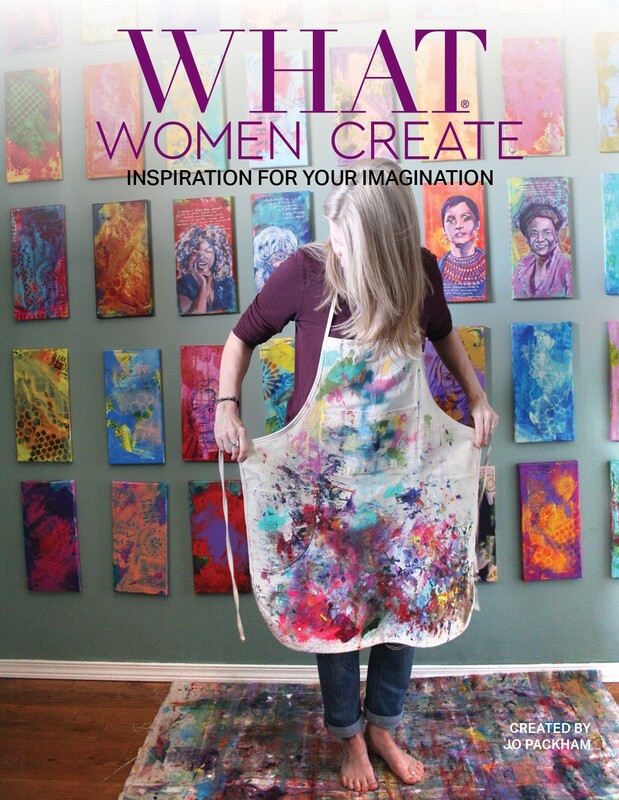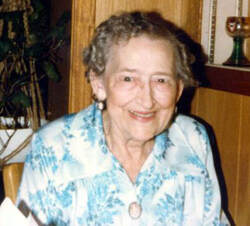 Ethel Maud (Parsonage) Kellar was from a family in Ilford, Essex, part of the emerging middle class. Her mother's family originated in Kent, the oldest part of England; they were Bridgers. (As people emigrated to the cities, this family became part of the massive working class à la Oliver Twist -- which I learned from my research and which my grandmother never ever shared.) She was well-educated for girls of her era and the first photo shows her working in a butcher shop. Although her father worked for the railroad, others in her extended family on the Bridger side were butchers and that's how they attained their wealth. Several were of German origin and Anglicized their surnames especially during WWI. It was a musical family; her mother played piano and her father the violin. it was also a very chatty, story-telling kind of family which is where I inherited this defect. Ethel met my grandfather, George Frederick Kellar, when she was 20 and singing (She had a beautiful voice and sang in her church choir into her 80s.) for the troops in London. My grandfather was on a leave due to injuries sustained at the Somme. He was with the Canadian Expeditionary Force, lying about his age to sign up. He was born in what is now Actinolite, Ontario. So, they married on October 3rd, 1917 in Ilford (greater London) and left for Canada soon after. She was a few weeks shy of her 21st birthday and George had turned 21 in July. My grandmother told me she barely knew my grandfather when she married him. She just wanted to get out of London and away from the zeppelins flying over the city. Her mother wouldn't speak to her for years afterwards as she accused Ethel of "breaking up the family." After she left for Canada, a sister and two brothers emigrated to Australia. The settled in Kingston, Ontario where my grandfather worked in a furniture store. They lived on Alfred Street, a couple of blocks up from where I later lived as a university student. (Their house is still there.) Their firstborn, a boy, died at 18 months of pneumonia. My grandfather's nerves were so bad (probably PTSD) his doctor suggested he should try farming, so they subsequently moved east to a farm at Odessa, Ontario. Neither of them had any experience and my grandmother told me George once bought an old nag by mistake; my grandmother said at least she knew how to tell a horse's age by its teeth! She also told me she used to go up on a hill and cry every afternoon as she was surrounded by uneducated, ignorant Canadian farm women. They had a daughter there; twin boys did not survive and were buried on the farm. They lost everything in a fire (including my grandmother's wedding ring), my grandmother throwing their daughter down to my grandfather from a second story window. Next, they bought a farm at Ameliasburgh on the Bay of Quinte (in Lake Ontario) in Prince Edward County across from Trenton. This was a beautiful place; the house is still there although much changed -- the farm having been divided up and sold for estates a number of years ago now. Two more girls and a boy were born. In March 1939, my grandfather died after falling through the ice in Lake Ontario; he was returning from Trenton with a pound of butter my grandmother had requested. People on shore saw him go under but rescue efforts were slower then and by the time they got to him, he'd gone under. I have the newspaper article which my grandmother saved. Ethel had to sell the farm although the government kept it in trust until each of her children attained the age of maturity, at 21. They all declined to take it on. My grandmother kept the sales bill for all the farm equipment. My mother and I wept when we came across that in her things a few years ago. My grandmother had to move into town -- Belleville -- where she worked four jobs to raise her children. She was hospitalized for a nervous breakdown soon after that move and their next-door-neighbour cared for the children. They were poor, living in rental homes which my grandmother would spend several days cleaning before she would permit her children to enter the premises. However, Ethel was proud and always sent the turkeys back to the church at Christmas and Thanksgiving, saying they were fine. She was trained in first aid and active with St. John's Ambulance as well as the Order of the Eastern Star, a Protestant women's organisation. She was also a monarchist and active politically as you might expect, and, although very tolerant and progressive for her generation, you always knew the British were best. My grandmother was a talented seamstress (She made my mother's grad and wedding gowns) and did beautiful knitting and crocheting. She could mend anything. She attended the Anglican Church until she became too frail. She had a large Bible and a complete record collection of famous operas. Despite such a hard life, she had a great sense of humour and loved to laugh. (Her family had bought jewellery during the war when currency fell and had given her this huge emerald in the ugliest setting imaginable. She wore it all the time and laughed because people just assumed it was junk jewellery. And she never sold it even though it could have made things a lot easier for her.) She lived in an apartment in her eldest daughter's home for many years and cared for her two grandchildren while her daughter taught at the Ontario School for the Deaf in Belleville. Her two other daughters became a nurse and a secretary/bookkeeper. She had scrimped and saved so her only son could go on to post-secondary school, but he dropped out of high school in grade 11 and went to work for Alcan Steel in Kingston (This was when Ontario was booming in the manufacturing sector during the 1940s-1960s.). She used all those savings to travel to England and Australia to visit her family by ocean liner before air travel replaced it. ~ Catherine Buchanan Comments are closed.
|
|
